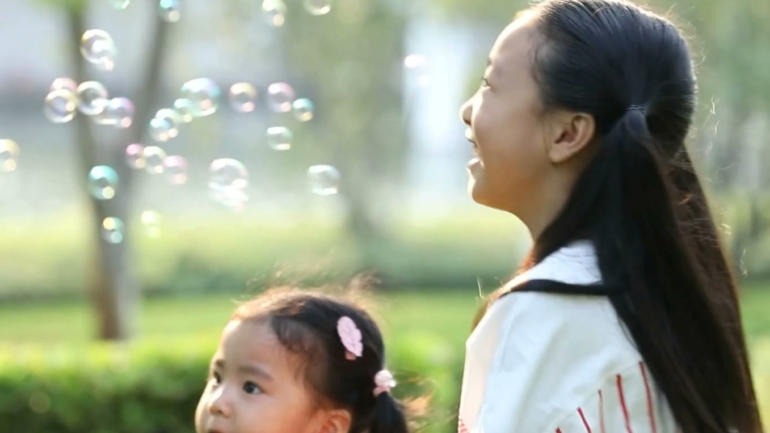Three and a half year into China’s two-child policy, many families are happily welcoming second-borns into the world. But all-in-all, new births are down nationwide.
Many question whether the policy is helping to solve the nation’s demographic shift, and alleviate China’s rapidly aging population.
Having two kids has always been a dream for 33-year-old Jiang Xingang.
In 2017, his dream came true when his second daughter was born.
Both Jiang and his wife were the only children in their families. They know how hard it will be to take care of four seniors and kids.
They don’t want their children to bear the same burdens in the future. So with the relaxation of the one-child policy three years ago, they started preparing to have one more child.
“As the only child in the family, I felt very lonely. I hope my children have someone to accompany and to share their happiness and sorrows. I believe that’s what most parents who have two children want,”said Jiang Xingang
Many Chinese want to have more children, while some couples don’t want even one.
New births in China fell to 15.23 million last year, compared to 17.86 million in 2016 and 17.23 million the following year.
Since early 2016, China has allowed all married couples to have two children. It hopes to cope with the nation’s demographic shift.
“Now we can see the two-child policy working. The rates of couples having a second child are higher than those just having one,” Zhang Yuanzhen, the VP of Henan Health Cadre College said.
At the same time, China faces a rapidly aging population.
According to the National Bureau of Statistics, China had 158.31 million people aged 60 or over in 2018, while people older than 65 accounted for 11.4 percent of the population.
China is aging. Many may attribute it to the decades-long family planning policy. And they believe the adoption of the two-child policy will solve the problem. But local governments and experts say it’s not that simple.
“When the economy grows quickly, the population ages faster. We can see that western countries and developed countries have had similar population trends in history. But the aging situation differs from country to country and region to region,” Wang Zili, Director of Family Planning Department of Health Commision of Henan Province said.
Many parents call for having as many babies as they want.
But experts say that won’t stop the aging problem, at least not quickly.
They say demographic shifts are a complicated issue, one that requires time and more policies to work together.
 CGTN America
CGTN America
